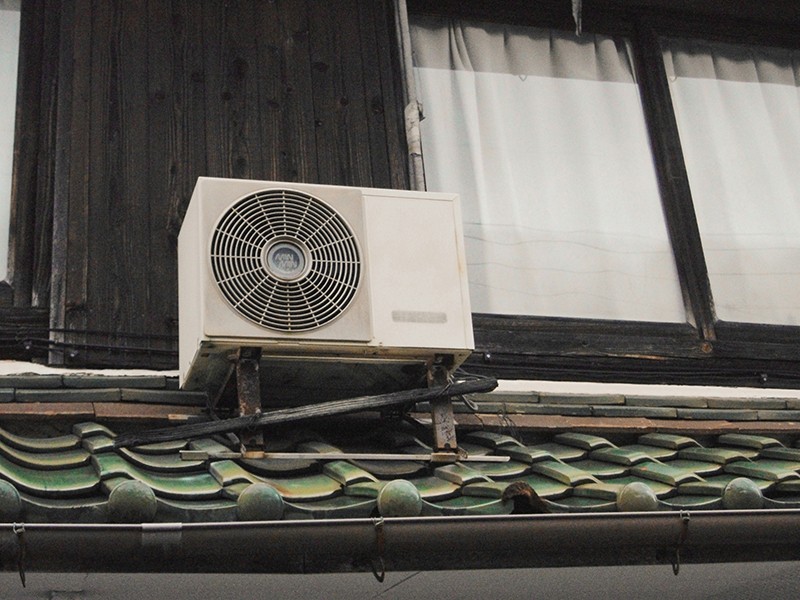Leaking Basements in Philadelphia Caused by Cold Temperatures
The Philadelphia area experiences a diverse range of weather conditions throughout the year, from sweltering summer heat to bone-chilling winter cold. During the colder months, homeowners often face a unique challenge: water leaking into their basements. This issue, while common, can cause significant damage if left unaddressed. Understanding the causes of basement leaks during cold weather and taking preventive measures can save homeowners considerable time, money, and stress. For a long-term solution, basement waterproofing scientists offer advanced methods to address the root causes of leaks and provide permanent remedies. These basement waterproofing scientists are a family-owned business with long-standing experience and a commitment to customer care.
Understanding the Issue
Leaking basements can be a major source of stress for homeowners. Water damage can lead to costly repairs, health hazards, and a decrease in property value. It’s essential to understand the issue and take proactive measures to prevent water from entering your basement. Basement waterproofing is a crucial step in protecting your home from water damage. By understanding the causes of leaking basements and taking regular maintenance steps, you can ensure your basement remains dry and secure.
How Cold Temperatures Lead to Basement Leaks
Cold temperatures can exacerbate basement leaks due to a combination of factors:
- Frost Heave: When the ground freezes, water within the soil expands. This phenomenon, known as frost heave, can put immense pressure on a home’s foundation. Over time, this pressure may cause cracks to form in the foundation walls or floors, providing pathways for water to seep into the basement.
- Melting Snow and Ice: Snow and ice accumulation around the foundation can melt during daytime temperature fluctuations. If the water is not properly directed away from the home, it can pool near the foundation, increasing the risk of leaks. Poor drainage or clogged gutters exacerbate this problem.
- Hydrostatic Pressure: As the ground becomes saturated with water from melting snow or rain, hydrostatic pressure builds up against the foundation. This pressure forces water through cracks or porous materials, leading to basement leaks. Pipes play a crucial role in drainage systems like French drains and sump pumps, facilitating effective water management. Regular inspection and maintenance of these pipes are essential to prevent blockages and ensure proper functionality.
- Foundation Cracks from Thermal Expansion and Contraction: Foundations can expand and contract due to temperature fluctuations. Repeated cycles of freezing and thawing can weaken the foundation and cause small cracks to widen over time, allowing water to penetrate the basement.
Causes of Leaking Basements
There are several causes of leaking basements, including poor drainage, cracks in the foundation, and inadequate waterproofing. Excess water can seep into your basement through cracks in the walls and floor, causing damage to your belongings and compromising the structural integrity of your home. Regular maintenance, such as inspecting your gutters and downspouts, can help prevent water from accumulating around your home. However, if you’re experiencing persistent water issues, it’s essential to consult a professional waterproofing expert to identify the root cause of the problem.
Common Signs of Basement Leaks
Detecting basement leaks early can prevent costly repairs. Look out for these warning signs:
● Water Stains: Discoloration on walls, floors, or ceilings often indicates water intrusion.
● Efflorescence: A white, powdery residue on basement walls signifies water evaporating and leaving behind mineral deposits.
● Mold and Mildew: Persistent moisture creates an ideal environment for mold and mildew, which can appear as black or green patches and produce a musty odor.
● Pooling Water: Visible water accumulation is a clear sign of a leak.
● Increased Humidity: A damp or clammy feeling in the basement often accompanies water infiltration.
Ensuring a secure connection to drainage systems is crucial to prevent leaks and maintain a dry basement.
Risks of Ignoring Basement Leaks
Ignoring basement leaks during cold weather can lead to severe consequences, including:
- Structural Damage: Prolonged water exposure can weaken the foundation, causing structural instability.
- Mold Growth: Mold not only damages surfaces but also poses serious health risks, especially for individuals with respiratory issues.
- Damage to Belongings: Water intrusion can ruin furniture, electronics, and other stored items in the basement.
- Decreased Property Value: A leaking basement can significantly lower a property’s market value and deter potential buyers. Waterproofing experts take great pride in their work, ensuring high-quality solutions and customer satisfaction.
- Higher Energy Bills: Moisture can compromise insulation, making it harder to heat the home efficiently during winter months.
Solutions Offered by Basement Waterproofing Scientists
Basement Waterproofing Scientists specialize in addressing water intrusion issues through innovative techniques and scientifically proven methods. These professionals provide permanent solutions tailored to the unique needs of each property. Here’s how they can resolve basement leaks:
-
Comprehensive Foundation Assessments: Waterproofing scientists begin with a thorough evaluation of the foundation and surrounding environment. Using advanced tools such as infrared imaging and moisture meters, they identify the sources of leaks and assess the extent of damage. It is crucial to complete all necessary tasks effectively to ensure the property remains safe and well-maintained.
-
Customized Waterproofing Systems: Based on their findings, waterproofing scientists design tailored solutions. These systems often include a combination of exterior and interior measures to ensure comprehensive protection.
- Exterior Waterproofing Solutions:
● Excavation and Membrane Application: Scientists apply high-grade waterproof membranes and drainage panels to the exterior foundation walls. These barriers prevent water from penetrating the foundation.
● Soil Modification: Adjusting the soil composition around the home improves drainage and reduces hydrostatic pressure.
- Interior Waterproofing Solutions:
● Drainage Systems: Interior drainage channels are installed to collect water and direct it to a sump pump for removal. This approach is less invasive than exterior methods but highly effective.
● Vapor Barriers: High-quality vapor barriers are applied to interior walls to block moisture and prevent dampness.
- Advanced Crack Repair Techniques:
● Epoxy and Polyurethane Injections: These materials are injected into foundation cracks to seal them completely. Unlike DIY sealants, professional-grade injections are flexible and can withstand thermal expansion and contraction.
-
Sump Pump Installation and Maintenance: Basement Waterproofing Scientists install state-of-the-art sump pumps with battery backup systems to ensure uninterrupted operation during power outages. Regular maintenance services keep the pumps functioning optimally.
- Hydrostatic Pressure Management:
● French Drains: These underground drainage systems redirect groundwater away from the foundation, alleviating hydrostatic pressure.
● Grading and Landscaping Adjustments: Regrading the landscape and installing retaining walls can further manage water flow.
- Mold Prevention and Remediation: Waterproofing professionals also address existing mold issues by removing affected materials and applying antimicrobial treatments. They implement measures to ensure that future moisture does not lead to mold growth.
Sump Pump Importance and Maintenance
A sump pump is a crucial component of any basement waterproofing system. Its primary function is to collect and remove water that accumulates in your basement, preventing flooding and water damage. Regular maintenance is essential to ensure your sump pump is working efficiently. This includes checking the pump for debris, inspecting the discharge pipe, and testing the pump regularly. A well-maintained sump pump can provide peace of mind and protect your home from costly water damage. If you’re unsure about the condition of your sump pump or need assistance with maintenance, consult a professional waterproofing expert for a free estimate.
Benefits of Hiring Waterproofing Scientists
Working with basement waterproofing scientists offers several advantages:
● Permanent Solutions: Unlike temporary fixes, scientific methods address the root causes of leaks for lasting results. It is crucial to verify the effectiveness of these waterproofing solutions to ensure they provide lasting results.
● Increased Property Value: A professionally waterproofed basement enhances the home’s marketability and value.
● Healthier Living Environment: Proper waterproofing eliminates mold and dampness, creating a healthier indoor environment.
● Energy Efficiency: Reduced humidity levels improve insulation performance, leading to lower energy bills.
● Peace of Mind: Knowing your basement is protected against water damage provides peace of mind during harsh weather conditions.
Preparing for Cold Weather
Proper preparation can make a significant difference in preventing basement leaks during winter. Here are a few tips:
- Inspect Your Home in the Fall: Check for cracks, gaps, and drainage issues before the first freeze. Completing all necessary preparations during this time is crucial to prevent basement leaks during winter.
- Service Your Heating System: A functioning heating system prevents extreme temperature fluctuations inside the home, reducing the risk of foundation damage.
- Stock Emergency Supplies: Keep supplies like a wet/dry vacuum, dehumidifier, and sandbags on hand to address leaks promptly.
- Monitor Weather Conditions: Stay informed about upcoming storms or temperature drops to take proactive measures.
Conclusion
Cold temperatures in the Philadelphia area pose unique challenges for homeowners, particularly when it comes to basement leaks. By understanding the causes and risks associated with leaks during winter, homeowners can take proactive steps to protect their properties. However, for permanent solutions, enlisting the help of basement waterproofing scientists is the most effective approach. These experts leverage cutting-edge technology and scientific methods to safeguard homes against water intrusion, ensuring they remain safe, dry, and comfortable for years to come. Addressing these issues promptly not only protects the structural integrity of the home but also enhances its overall value and livability. Proceeding with proactive steps to protect the property from basement leaks is crucial for long-term security and peace of mind.
IBNS
Senior Staff Reporter at Northeast Herald, covering news from Tripura and Northeast India.
Related Articles

India steps into global AI spotlight as PM Modi unveils AI Impact Summit 2026
New Delhi/IBNS: Prime Minister Narendra Modi on Monday inaugurated the India AI Impact Summit and Expo 2026 at Bharat Mandapam in New Delhi, formally placing India at the centre of global conversations on artificial intelligence.

Croma’s summer sale is here — Up to 71 pct off on ACs, premium TVs!
Croma, an omni‑channel electronics retailer from the Tata Group, has announced the Croma Summer Sale 2026, offering customers value-packed deals on cooling solutions and everyday tech essentials as temperatures begin to rise.

Learn AI or become redundant: Microsoft India President issues stark message
New Delhi/IBNS: Dismissing fears that Artificial Intelligence will eliminate jobs, Puneet Chandok, president of Microsoft India and South Asia, said AI will “unbundle” operational tasks but emphasised that continuous skilling will be essential for survival in the evolving job market.

India set to stake its claim in global AI race with power-packed tech leaders’ summit
New Delhi/IBNS: India is all set to inaugurate one of the world’s largest artificial intelligence summits on Monday evening, as Prime Minister Narendra Modi looks to position the country as a decisive player in the global race to develop frontier AI models.
Latest News

Afghanistan retains status as world’s weakest passport in February 2026 Henley Index

Indore MBA student murder: Accused allegedly attempts black magic after killing

Feb 26 wedding? Viral invite sparks buzz around Vijay Deverakonda, Rashmika Mandanna

Three Bangladeshi with a woman arrested from bordering Sepahijala district

